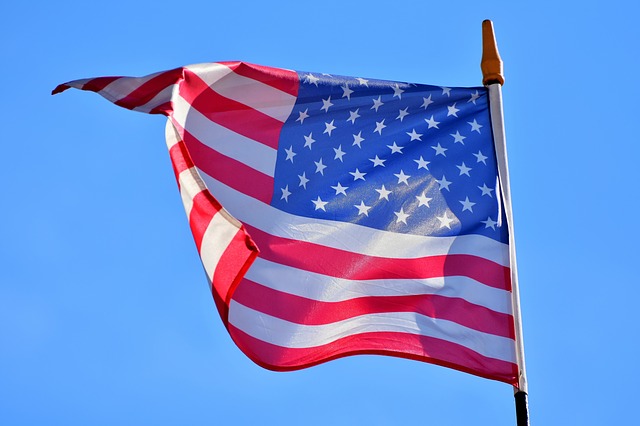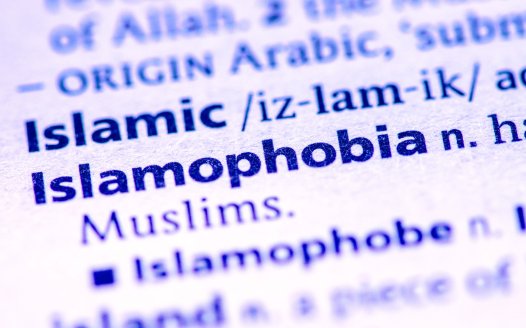US secularist groups condemn travel ban which targets Muslims
Posted: Fri, 29th Jun 2018
A series of secularist and atheist groups have lined up to condemn a US Supreme Court decision upholding a travel ban on people from several Muslim-majority countries.
On Tuesday the court upheld a ban on travel to the US from seven countries: North Korea, Syria, Iran, Yemen, Libya, Somalia and Venezuela. Five of them are countries with majority Muslim populations.
Lower courts had ruled that the ban violated the US constitution.
The ban follows President Trump's call during the 2016 election campaign for "a total and complete shutdown of Muslims entering the United States until our country's representatives can figure out what is going on".
The ban is a modified version of an order Trump signed when he first took office in January 2017. Then he banned entry for 90 days to citizens from seven Muslim-majority countries: Iraq, Syria, Iran, Libya, Somalia, Sudan and Yemen. The order also indefinitely halted the entry of refugees from Syria.
The groups vocally opposing the court's decision have included the Secular Coalition for America (SCA), the Freedom From Religion Foundation (FFRF), the Centre for Inquiry (CfI), Americans United for Separation of Church and State (AU) and American Atheists.
On Twitter FFRF described it as "disgraceful" and in a longer press release it said the ban "blatantly disregards" the establishment clause in the first amendment of the US constitution. The clause prohibits the government from creating a law "respecting an establishment of religion".
FFRF made the same point during the case, in a brief it filed as a 'friend of the court'.
AU president Rachel Laser said: "The Supreme Court today has forsaken one of our most foundational and cherished values — that our government must never single out any one religion for discrimination. Our hearts break for the millions of Americans who, because of the Muslim ban, will continue to be separated from their loved ones."
AU has vigorously campaigned against the measure since it was first enacted.
Larry Decker, executive director of SCA, said the Supreme Court had "legitimised bigotry and threatened the rights of all Americans".
"This travel ban is nothing more than a thinly-veiled religious test and the fulfilment of President Trump's repeated pledge to institute a 'total and complete shutdown of Muslims entering the United States'. Any reasonable observer assessing the travel ban in light of President Trump's 2016 campaign will see it for what it is — an assertion of Christian privilege, anti-Muslim bigotry, a rebuke of our first amendment, and a grave threat to religious freedom.
"Americans of all faiths and none must recognise the danger of the majority's opinion. If the Trump administration can disparage and single out Muslims, it can do the same to any of us."
The CfI, which promotes "science, reason, critical thinking, and humanist values" and merged with the Richard Dawkins Foundation for Reason & Science in 2016, said the ban was an act of "religious discrimination".
Nick Little, CFI's vice-president, said: "As far back as 2015, Donald Trump has made no secret of his desire to see Muslims banned from the United States, and promised to carry out this ban once in office. He followed through, and the Supreme Court, unconscionably, is letting him get away with it.
"Secular and religious communities alike must and will stand together to oppose religious bigotry and discrimination, especially when it emanates from the White House itself."
Ed Buckner, the interim executive director of American Atheists, said: "Singling out any group of people for disfavour, or favour, on the basis of their religious beliefs is un-American, unconstitutional, and is something that American Atheists will not stand for. Religious neutrality and equal protection under the law are the promises of our constitution, and today the Supreme Court fell far short of those promises."
Some have said the ban reveals a double standard in the Supreme Court's view of religiously-motivated lawmaking. The court recently found in favour of a baker who refused to bake a wedding cake for a same-sex couple on the dubious basis that a commission in the state of Colorado showed anti-Christian animus.
It based that judgement on public comments made by members of the commission. But in the case of the travel ban the majority opinion disregarded Trump's anti-Muslim comments.
The ban has sharply divided Americans along religious lines. In February 2017 a Pew survey found that a majority of Protestants in the US, including 76% of white evangelicals, supported it. Thirty-six per cent of Catholics and 24% of the religiously unaffiliated agreed.
Overall 38% of Americans approved while 59% disapproved.
While you're here
Our news and opinion content is an important part of our campaigns work. Many articles involve a lot of research by our campaigns team. If you value this output, please consider supporting us today.








